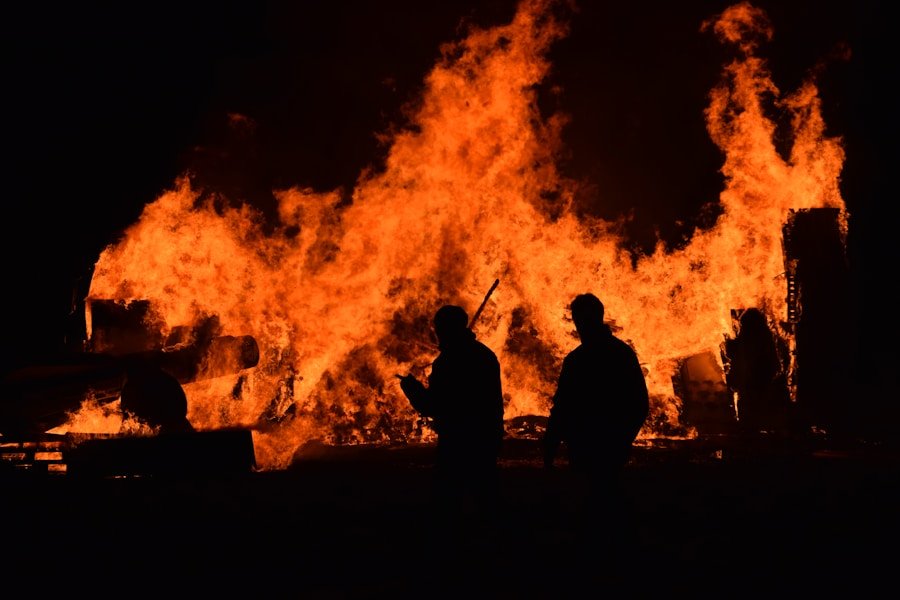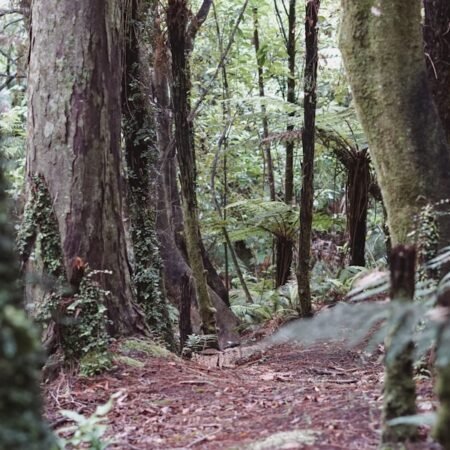One of the most common errors made by novice campers is overpacking, which can lead to unnecessary stress and discomfort during the trip. Seasoned campers understand that packing lightly is essential for a successful camping experience. When it comes to clothing, it is recommended to choose versatile, quick-drying items that can be layered for warmth.
Instead of bringing multiple changes of clothes for each day, consider re-wearing items or washing them at the campsite. To pack efficiently, it is crucial to consider the weight and size of each item. Opt for lightweight, compact gear whenever possible, and avoid bringing items that serve the same purpose.
For instance, instead of packing a bulky sleeping bag and a separate blanket, consider investing in a high-quality sleeping bag that can keep you warm in various conditions. By being mindful of what you pack and choosing items that serve multiple purposes, you can significantly reduce the weight and bulk of your camping gear. Selecting the right campsite is vital for a successful camping trip, but it is a mistake that many beginners make.
When choosing a campsite, it is essential to consider factors such as terrain, proximity to water sources, and potential hazards. Experienced campers know that the ideal campsite offers a balance of convenience and natural beauty. Look for a site that is relatively flat and free of rocks and roots, as this will make setting up your tent much easier.
Additionally, consider the proximity to water sources such as rivers or lakes, as this can make cooking and cleaning more convenient. It is also crucial to be mindful of potential hazards when choosing a campsite. Avoid setting up camp near dead or unstable trees, as these can pose a risk of falling during high winds or storms.
Look for signs of wildlife activity, such as animal tracks or droppings, and avoid camping in areas where large predators are known to frequent. By taking the time to carefully select your campsite, you can ensure a safe and enjoyable camping experience.
Key Takeaways
- Overpacking can lead to unnecessary stress and discomfort during your camping trip. Pack light and efficiently to make your experience more enjoyable.
- Choosing the right campsite is crucial for a successful camping trip. Take the time to research and find the perfect spot that meets your needs and preferences.
- Ignoring weather conditions can put you at risk during your camping trip. Always be prepared for the elements and have a plan in place for unexpected changes in weather.
- Inadequate meal planning can result in unsatisfying and difficult meals while camping. Plan ahead and prepare easy and delicious meals to enjoy during your trip.
- Poor tent set-up can lead to discomfort and even safety hazards. Avoid common tent mistakes by practicing setting up your tent before your trip and ensuring it is secure and stable.
Ignoring Weather Conditions: How to Prepare for the Elements
Ignoring Weather Conditions
While it’s impossible to predict the weather with 100% accuracy, it’s crucial to be prepared for a variety of conditions when camping. Experienced campers know that being prepared for the elements can make all the difference in the success of your trip. Before heading out, take the time to research the typical weather patterns for the area you’ll be camping in. This can give you a good idea of what to expect and help you pack accordingly. In addition to checking the forecast, it’s essential to pack clothing and gear that can handle a range of weather conditions. Even if the forecast calls for sunny skies, it’s always a good idea to pack rain gear and extra layers in case the weather takes a turn for the worse. Additionally, be sure to bring along a sturdy tent that can withstand wind and rain, as well as a tarp or ground cover to protect your gear from moisture.
Inadequate Meal Planning
Meal planning is another area where inexperienced campers often fall short. It’s easy to rely on pre-packaged meals and snacks, but this can lead to a lackluster camping experience. Experienced campers know that with a little planning and preparation, it’s possible to enjoy delicious and satisfying meals while camping. One of the keys to successful camping meals is simplicity. Look for recipes that require minimal ingredients and equipment, and consider prepping some ingredients at home before you head out. Another tip for easy and delicious camping meals is to embrace the versatility of certain ingredients. For example, eggs can be used in a variety of dishes and are easy to transport in a cooler. Similarly, canned beans and vegetables can be used in everything from soups and stews to tacos and burritos.
Poor Tent Set-Up
Setting up your tent may seem like a simple task, but it’s one that many inexperienced campers struggle with. Poor tent set-up can lead to discomfort, exposure to the elements, and even damage to your gear. Experienced campers know that taking the time to properly set up your tent can make all the difference in your camping experience. When setting up your tent, be sure to choose a flat, level area free of rocks and debris. Clear away any sticks or sharp objects that could puncture the floor of your tent, and consider using a ground cover or tarp for added protection. Another common mistake when setting up a tent is failing to properly secure it against wind and rain. Be sure to stake down all corners of your tent and use guylines if necessary to prevent it from blowing away in strong winds.
Forgetting Essential Gear: Must-Have Items for a Successful Camping Trip
Forgetting essential gear is another common mistake that inexperienced campers make. It’s easy to get caught up in the excitement of planning a camping trip and overlook important items, but this can lead to unnecessary stress and discomfort once you’re out in the wilderness. Experienced campers know that having the right gear can make all the difference in their camping experience.
When packing for your trip, be sure to make a checklist of essential items such as a tent, sleeping bag, sleeping pad, cooking equipment, and first aid supplies. In addition to these basic items, there are several other pieces of gear that experienced campers consider essential for a successful trip. A headlamp or flashlight is crucial for navigating around camp after dark, as well as for emergency situations.
A multi-tool or knife can also come in handy for a variety of tasks such as food prep, gear repair, and first aid. Additionally, consider bringing along items such as insect repellent, sunscreen, and a map or compass for navigation. By being mindful of essential gear and packing accordingly, you can ensure that you’re prepared for whatever comes your way during your camping trip.
Disregarding Leave No Trace Principles: How to Minimize Your Impact on the Environment Finally, disregarding Leave No Trace principles is a mistake that many inexperienced campers make. Leave No Trace is a set of principles designed to minimize human impact on the environment while enjoying outdoor activities such as camping. Experienced campers know that following these principles is crucial for preserving the natural beauty of our wilderness areas for future generations.
One of the key principles of Leave No Trace is to dispose of waste properly. This means packing out all trash and waste from your campsite and properly disposing of it in designated receptacles. Another important principle of Leave No Trace is to minimize campfire impacts.
While campfires can be an enjoyable part of the camping experience, they can also have negative effects on the environment if not managed properly. Be sure to use existing fire rings when possible, keep fires small, and only burn wood from local sources. Additionally, be sure to fully extinguish your fire before leaving your campsite or going to bed.
By following these principles and being mindful of your impact on the environment, you can ensure that our wilderness areas remain pristine for future generations to enjoy. In conclusion, there are many common mistakes that inexperienced campers make when heading out into the wilderness. By being mindful of these potential pitfalls and following the tips provided by experienced campers, you can ensure that your camping trip is enjoyable and successful.
From packing light and efficiently to choosing the perfect campsite and being prepared for the elements, there are many ways to set yourself up for a positive camping experience. By being mindful of essential gear and following Leave No Trace principles, you can minimize your impact on the environment while enjoying all that nature has to offer. With a little planning and preparation, you can enjoy many memorable camping trips in the great outdoors.
FAQs
What are some common camping mistakes to avoid?
Some common camping mistakes to avoid include not checking the weather forecast, forgetting essential items such as a first aid kit or proper clothing, setting up camp too close to water sources, and not properly securing food to prevent wildlife encounters.
How can I avoid getting lost while camping?
To avoid getting lost while camping, it’s important to bring a map and compass, familiarize yourself with the area before setting out, and stick to marked trails. It’s also a good idea to let someone know your planned route and expected return time.
What are some tips for staying safe while camping?
Some tips for staying safe while camping include checking the weather forecast, packing a first aid kit, staying hydrated, and being aware of potential wildlife encounters. It’s also important to follow campground rules and regulations and to properly store food to prevent attracting animals.
How can I make the most of my camping experience?
To make the most of your camping experience, it’s important to plan ahead, pack the right gear, and be prepared for various weather conditions. Additionally, taking time to appreciate nature, disconnecting from technology, and trying new outdoor activities can enhance the overall experience.













